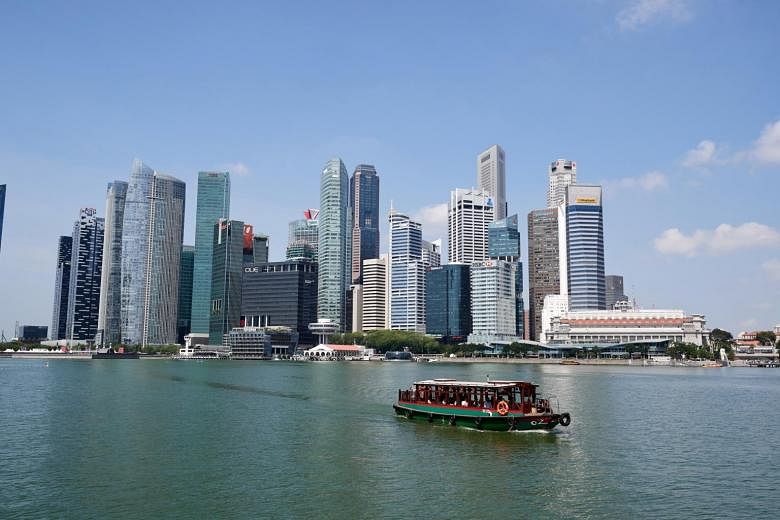Headline inflation rose slightly in August while core inflation remained low and flat, according to figures released yesterday.
The mild rise of headline inflation to 0.5 per cent - from 0.4 per cent in July - reflected higher private road transport costs and a smaller decline in accommodation costs, the statement from the Monetary Authority of Singapore (MAS) and the Ministry of Trade and Industry noted.
Core inflation, which strips out private road transport and accommodation costs, stayed constant at a three-year low of 0.8 per cent that it registered in July.
A steeper fall in the costs of retail goods and electricity and gas was offset by higher inflation in food and services, the statement added.
Economists said the muted inflation figures set the stage for the central bank to ease monetary policy next month - a way to spur growth - by slowing down the appreciation of its currency.
Maybank economists Chua Hak Bin and Lee Ju Ye expect the MAS to ease monetary policy - though not "to zero" - as Singapore likely escaped a technical recession in the third quarter of this year.
HSBC chief Asean economist Joseph Incalcaterra noted that core inflation is "tracking well below the long-run average", predicting that the central bank will slightly loosen monetary policy.
CIMB Private Banking economist Song Seng Wun said that an expected loosening in monetary policy next month will be consistent with measures taken in other parts of the world.
He pointed out that the United States Federal Reserve had cut interest rates earlier this month, following a previous cut in July, on the back of the US' trade war with China and slower global growth. These were the first cuts since 2008, Mr Song added.
In Singapore, food inflation rose slightly last month to 1.6 per cent year on year, from 1.4 per cent in July, because of a larger increase in the cost of non-cooked food items and higher inflation in food services.
Cost of retail items declined by 1.5 per cent year on year last month, larger than the 1 per cent fall in July, because of a sharper decline in the cost of medical products, household durables and supplies, and clothing and footwear items.
Another factor is the slower pace of increase in the cost of personal care products, the authorities said.
The Open Electricity Market initiative, which finalised its roll-out earlier this year, continued to dampen prices, they added, pointing out that the cost of electricity and gas fell at a faster pace of 7.8 per cent last month, compared with the 7 per cent drop in July.
Services inflation edged slightly up to 1.7 per cent year on year last month, from 1.6 per cent in July, on the back of higher telecommunication service fees and a larger pick-up in air fares.
Private road transport costs went up by 0.6 per cent year on year last month, slightly higher than the 0.3 per cent rise in July.
Accommodation costs dipped 0.7 per cent year on year last month, slower than the 0.9 per cent drop in July, due to a gradual decline in housing rentals.



